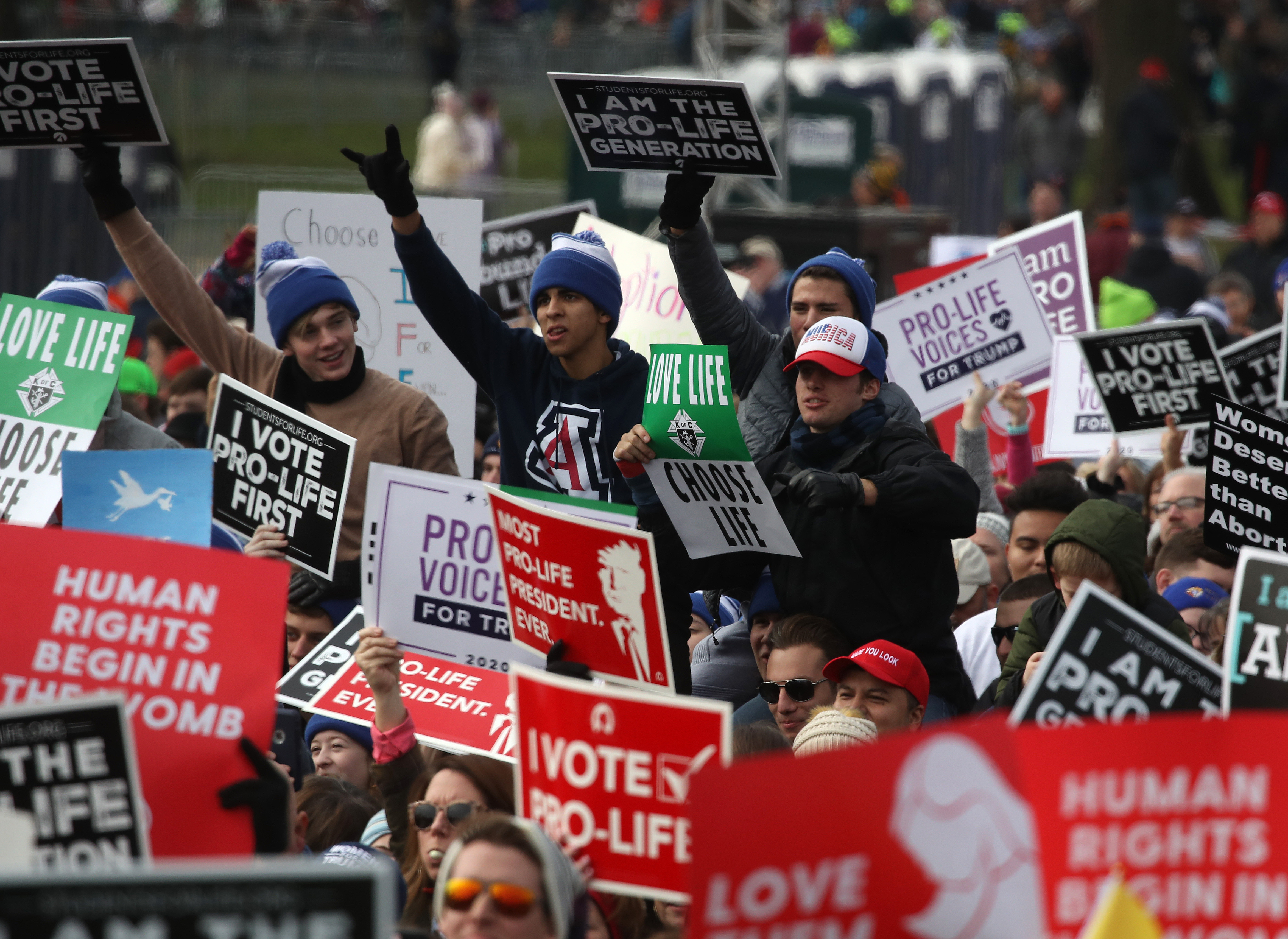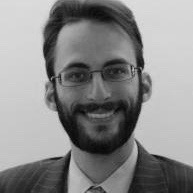 WASHINGTON, DC – JANUARY 24: People gather for the 47th March For Life rally on the National Mall where U.S. President Donald Trump addressed the crowd. (Photo by Mark Wilson/Getty Images)
WASHINGTON, DC – JANUARY 24: People gather for the 47th March For Life rally on the National Mall where U.S. President Donald Trump addressed the crowd. (Photo by Mark Wilson/Getty Images) Jewish organizations took part in the 47th March for Life at the National Mall in Washington, D.C., on January 24. The March for Life is a rally whose stated goal is to “promote the beauty and dignity of every human life by working to end abortion — uniting, educating, and mobilizing pro-life people in the public square.” It is held annually around the anniversary of the U.S. Supreme Court’s 1973 decision in Roe v. Wade, in which it was ruled that restrictive state regulations regarding abortion are unconstitutional.
Cecily Routman, president of the Jewish Pro-Life Foundation, spoke with the Jewish Journal about her organization. “Our goal of our organization is to educate the Jewish community about life-saving alternatives to unplanned and unwanted pregnancy in the Jewish community. And we do that through education. We have lots of resources on our website,” Routman said. “ … Our educational work is also to inform the Jewish community about our rabbinical heritage that sanctifies life. So, we have a whole rabbis’ page of quotes because so many of our Jewish brethren have never been informed about Judaism’s pro-life tradition.”
“I wanted to reach out specifically to Jews from a Jewish standpoint, because for so long, pro-life information has been denied to the Jewish community,” Routman continued. “We are an underserved demographic in this issue because we’ve been taught to, of course, avoid anything that might have a Christian or a Catholic tone to it. We forget, of course, that Judaism brought the sanctification of human life into the world through our Torah.”
Routman went on to discuss how successful her organization has been in achieving its goals. “We’ve definitely been successful in that the results that we’ve had would never have happened if we hadn’t gotten started. I don’t have a numerical analysis of our success, but I must say that every day, I’m contacted by Jewish people from all walks of life who feel that they can connect to a pro-life Jewish cause because they’re so isolated in their own communities, they dare not speak what’s in their heart for fear they will be demonized and ostracized,” said Routman.
Howard Slugh, who serves as legal counsel for the Jewish Coalition for Religious Liberty, was in attendance at the rally. He spoke with the Jewish Journal about his organization’s stance regarding abortion.
“We filed in cases that relate to abortion to the extent that they say religious groups have a right not to be forced against their religious principles to fund free abortion for their employees … that you can’t dragoon an employer into doing it.” He believes that “even if the state has a compelling interest, it can find a less restrictive way of pursing that interest through Title X, or through tax rebates, or welfare funds.”
Slugh went on to discuss how cases involving a private company’s right to deny coverage of birth control or include healthcare that covers abortion can impact the Jewish community. “They impact the Jewish community very directly in that the question of the case is ‘What does the government have to establish before they can force citizens to violate their consciences?’ ‘What amount of proof does the government have to show?’ ‘What situations is it where the government can force you to violate your faith?’ ” Slugh said.
Slugh also spoke about perceptions of the pro-life movement in the Jewish community more broadly. “There is no halachic position that would say other than to protect a mother’s life, you can have an abortion a minute before the baby is born. Somehow, some Jews have become convinced that the pro-life movement is pushing for restrictions that would apply even if the mother’s life is in danger; and that doesn’t exist,” said Slugh.
He said the pro-life movement with which he is associated is not against abortion if the mother’s life is in danger. “We ban starting at 20 weeks, when we think that fetuses are feeling pain.” He went on to explain how the pro-life movement wants to ban any abortion if the mother “doesn’t like the fact that her daughter is a female, or if a child had Down syndrome.”
When a fetus may feel pain is a hotly contested issue between pro-life advocates and many medical professionals. According to the American College of Obstetricians and Gynecologists, the physical capability to feel pain does not occur until at least 24 weeks, in the third trimester.
After the rally on the National Mall, participants of the March for Life marched through the streets to the United Stated Supreme Court. There were a small number of counter-protestors across from the Supreme Court, none of whom were from Jewish organizations.
However, there are Jewish organizations that support the right to choose and receive abortion information and access. The Religious Action Center of Reform Judaism published a post saying, “In the wake of the extreme state abortion bans, repeated attempts to restrict access to abortion by imposing targeted regulation of abortion provider (TRAP) laws, and other attacks on abortion and contraception in the name of religious liberty, the RAC has partnered with Women of Reform Judaism to mobilize our communities to act for reproductive health, rights, and justice on a local, state, provincial, and federal level.”
The National Council of Jewish Women released a statement saying, “The National Council of Jewish Women, along with 28 faith-based organizations, submitted an amicus brief in support of the clinic challenging Louisiana’s Act 620 in June Medical Services v. Gee. Act 620 requires physicians who provide abortion care to have hospital admitting privileges within 30 miles of where they provide care. In Whole Woman’s Health v. Hellerstedt, the Supreme Court struck down an identical Texas law, holding that admitting privileges have no medical purpose and present an unconstitutional ‘undue burden’ on the right to abortion.”
According to research conducted by the non-profit Guttmacher Institute, 2019 saw the most state restrictions on abortion and the right to choose, with more than 300 anti-abortion measures introduced by state lawmakers. According to the Institute, at the end of 2019, 25 new abortion bans became law, which were part of 58 enacted restrictions of that year.
Zachary Leshin is a writer and former congressional staffer based in Washington, D.C.























 More news and opinions than at a Shabbat dinner, right in your inbox.
More news and opinions than at a Shabbat dinner, right in your inbox.